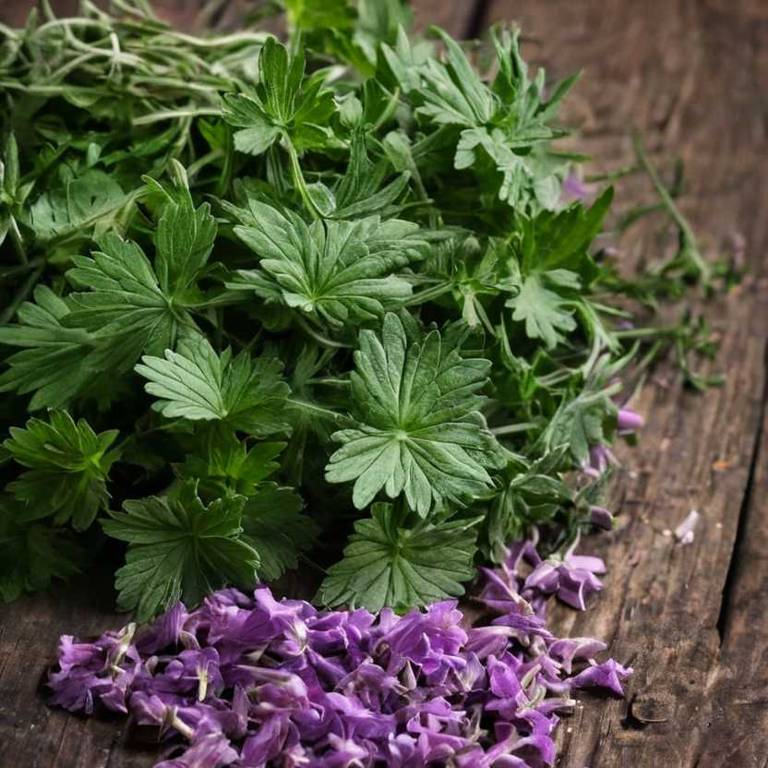Wild Mallow (Malva sylvestris)
Wild Mallow (Malva sylvestris) is a member of the Malvaceae family, native to Europe, Asia, and North Africa. Traditionally, its leaves, flowers, and stems have been used for poultices, infusions, and decoctions.
This herb is particularly valued for its anti-inflammatory, astringent, and expectorant actions, and has a long history of use in european herbal medicine, mediterranean herbal traditions, and traditional chinese medicine.

Quick Facts / Key Information
| Common Name | Wild Mallow |
|---|---|
| Scientific Name | Malva sylvestris |
| Plant Family | Malvaceae |
| Genus | Malva |
| Species | sylvestris |
| Native Range | Europe, Asia, North Africa |
| Plant Parts Used | Leaves, Flowers, Stems |
| Primary Medicinal Actions | Anti-Inflammatory, Astringent, Expectorant |
| Primary Traditional Systems | European Herbal Medicine, Mediterranean Herbal Traditions, Traditional Chinese Medicine |
| Historical Preparation Methods | Poultice, Infusion, Decoction |
Botanical Identity
- Scientific Name
- Malva sylvestris
- Common Name
- Wild Mallow
- Synonyms / Alternative Names
- Mallow, Common Mallow, Velvetleaf
- Plant Family
- Malvaceae
- Genus
- Malva
Botanical Description
- Growth Habit
- Perennial herbaceous plant.
- Height
- It typically grows to a height of 30 to 100 centimeters.
- Leaves
- Ovate leaves with serrated margins, upper surface pale green, lower surface grayish-white, featuring prominent stomatal bands along the veins.
- Flowers
- Inflorescences are clustered, each flower is zygomorphic with five petals, one of which is spurred, and has five stamens with two pairs of fused filaments.
- Stems
- Cylindrical, herbaceous, pubescent stems with opposite branching, ascending growth habit, and nodes bearing stipitate glands.
Traditional Uses / Historical Use
Traditional Systems
- European Herbal Medicine
- Mediterranean Herbal Traditions
Historical Preparation Methods
- Poultice
- Infusion
- Decoction
- Herbal Bath
Medicinal Actions
- Anti-inflammatory
- Commonly referenced as a soothing anti-inflammatory, in tissue-soothing contexts.
- Astringent
- In herbal texts, considered a calming astringent, in drying-focused uses.
- Expectorant
- In herbal literature, noted as a moderate expectorant, for airway-related applications.
- Diuretic
- Historically regarded as a mild diuretic, in urinary system discussions.
Active Compounds
- Tannin
- Naturally occurring polyphenols widely distributed in woody and leafy plant parts.
- Flavonoid
- A widely occurring class of plant polyphenols found in leaves, flowers, and fruits.
- Phenolic Acid
- Naturally occurring phenolic compounds present in many plant species.
- Glycoside
- A chemical class frequently found in roots, leaves, and seeds.
Modern Research Overview
Contemporary research on this plant includes areas such as chemical analysis, laboratory-based studies, and observational research. Detailed summaries of published findings are not included at this stage and will be added during future content updates.
Safety & Contraindications
- General Precautions
- Some general precautions have been associated with the use of this herb.
- Contraindications
- Specific contraindications associated with this herb have not been well documented.
- Allergies
- Sensitivity or allergy-related effects have not been clearly established.
- Drug Interactions
- Interactions with prescription medications have not been well documented.
- Toxicity
- The toxicity profile of this herb has not been clearly established.
- Pregnancy & Breastfeeding
- Available information regarding use during pregnancy or breastfeeding is limited.
Preparation & Usage Methods
- Infusion
- Dried or fresh plant parts are infused in hot water and consumed as a beverage.
- Decoction
- Plant material is simmered in water to extract compounds from tougher parts.
- Poultice
- Fresh or dried plant material is applied externally to the skin.
- Powder
- This method converts dried plant material into a uniform powder.
- Tincture
- Plant material is macerated in alcohol to create a concentrated liquid extract.
Growing, Harvesting & Storage
Growing / Cultivation
- Soil
- Prefers loamy soil with well-drained conditions. Typically grows best in organically rich soils.
- Sunlight
- Thrives in partial sun. Tolerates full sun to partial shade.
- Watering
- Prefers moist soils. Tolerates periodic dry conditions.
Medical Disclaimer
The information provided on this page is for educational and informational purposes only. It is not intended to diagnose, treat, cure, or prevent any medical condition. Always consult a qualified healthcare professional before using any herb for medicinal purposes.